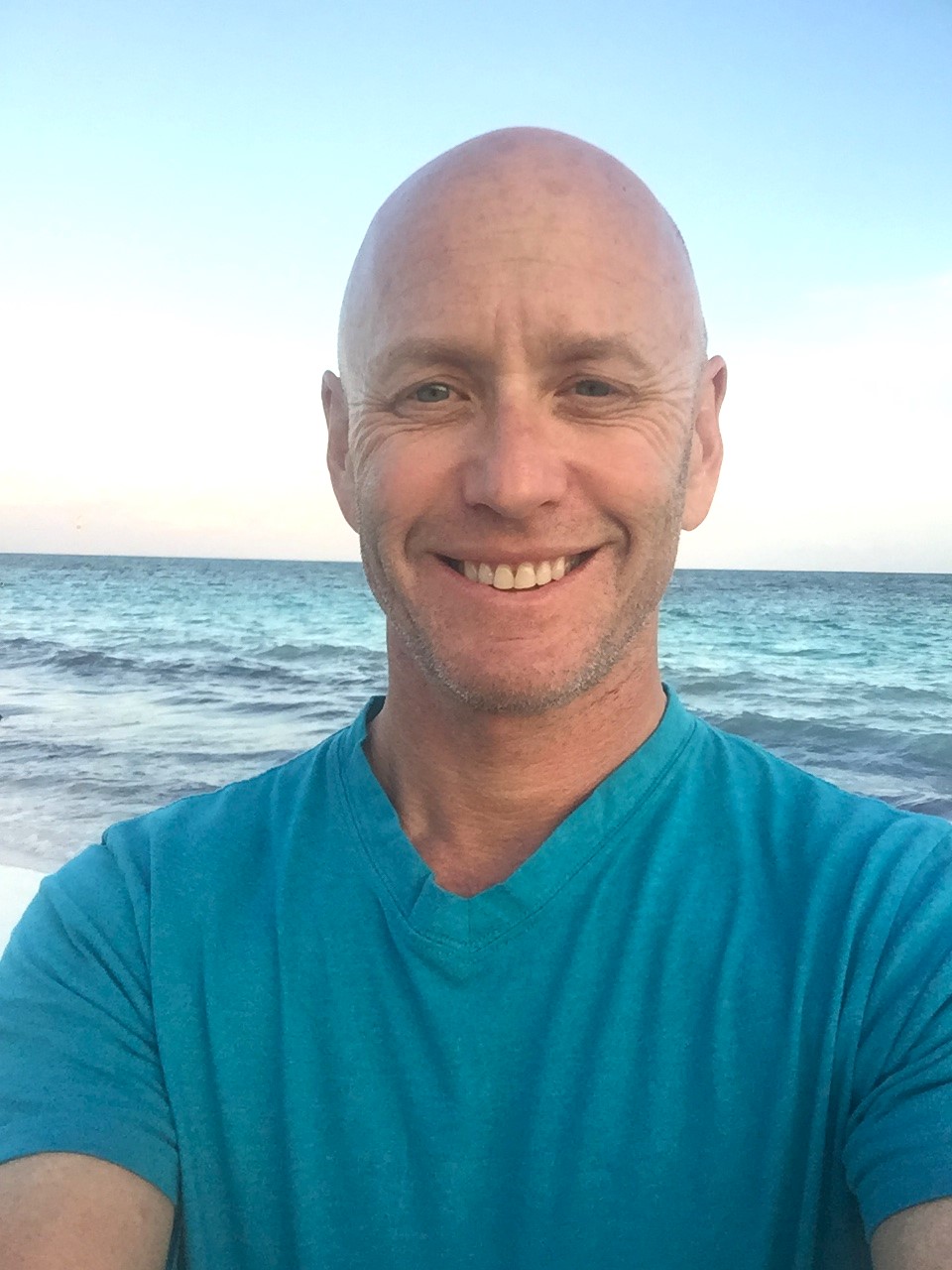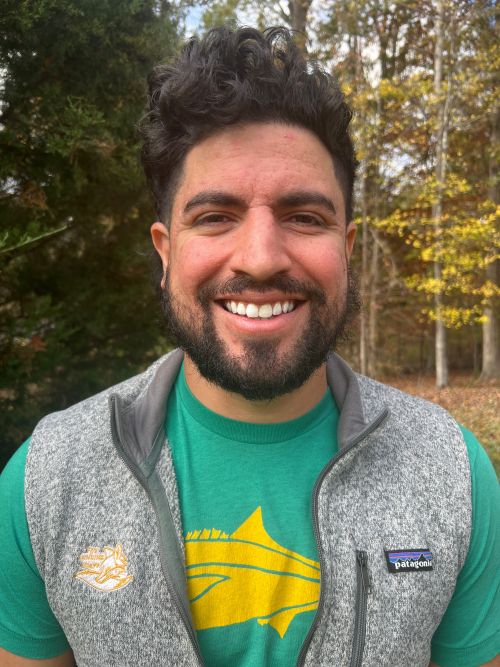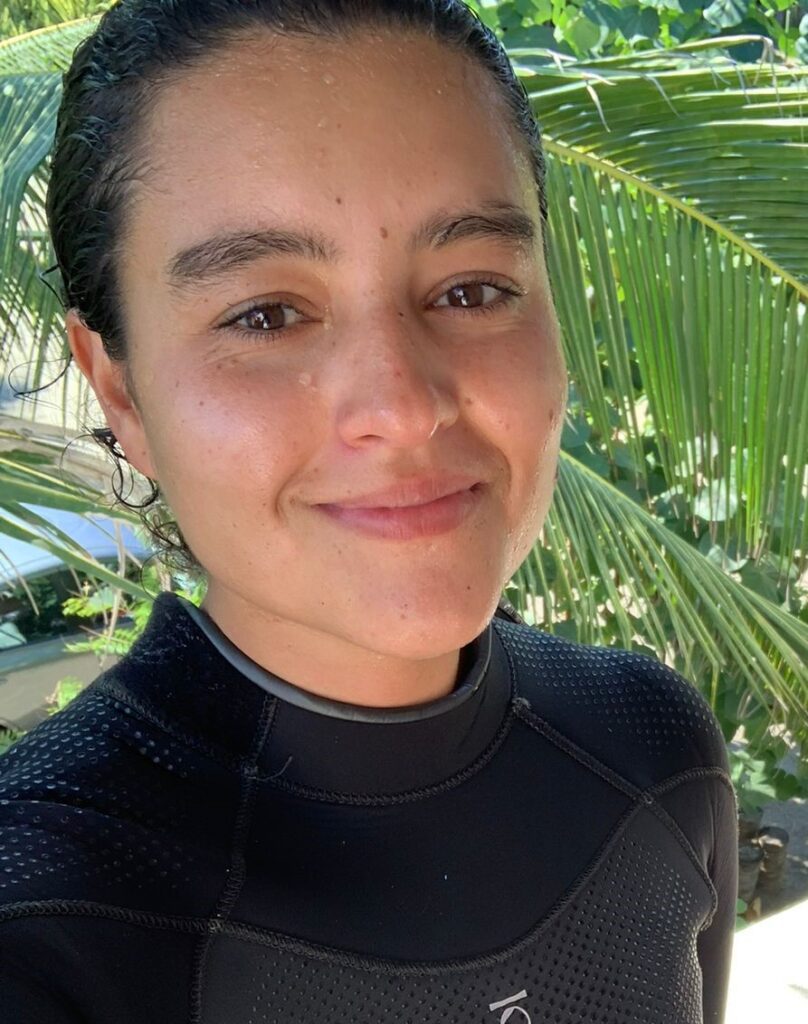Caribbean EcoFS Staff

Steve Johnson
EcoFS Director & Instructor
Steve founded the Ecosystem Field Studies (EcoFS) program in 2006 with a mission to provide unparalleled ecosystem learning opportunities for undergraduate college students. Steve has now safely and successfully taught over 40 EcoFS courses to over 800 students. Steve earned his Masters of Science degree from the Environmental Studies Program at the University of Montana at Missoula (UM) and EcoFS is an official academic partner to UM. Steve has devoted his entire career to studying and teaching Rocky Mountain and Caribbean ecosystem science and has 30+ years of experience in the field of ecosystem education.
Before creating EcoFS, Steve was Program Director at Cal-Wood Education Center, a private non-profit outside of Boulder, Colorado & the current location for the Colorado EcoFS course. At Cal-Wood Steve established environmental education programs to K-12 school groups & collaborated with teachers to design field science programs. Other ecosystem education experience includes serving as a Naturalist for the National Park Service, Rocky Mountain Regional Coordinator for the Student Conservation Association, and Field Instructor for Yosemite National Institutes in California. Steve holds an Advanced Open water SCUBA certification with over 300 Caribbean dives & lives in Boulder, Colorado.

Jimmy Rivera
Co-Instructor
Jimmy is excited to bring his extensive background in environmental education and marine science to the Caribbean EcoFS team. With a degree in Environmental Studies from Eckerd College in St. Petersburg, Florida, and a NAUI Rescue Diver certification, Jimmy has dedicated his career to fostering curiosity and hands-on learning in both classroom and field settings.
Jimmy has over seven years of teaching experience, including designing scientific labs within the International Baccalaureate (IB) program at Escuela Bilingüe Internacional and guiding high schoolers at Durham School of the Arts through experimental design and scientific exploration. He has also taught marine science at the Catalina Island Marine Institute, where he immersed students in the study of marine ecosystems and emphasized ocean conservation.
Beyond traditional teaching, Jimmy has led impactful conservation projects as an education leader for Rustic Pathways. In Costa Rica, he guided students in sea turtle conservation, including nest monitoring (recording nest hatchings and excavations), hatchery construction, and protecting endangered turtles. In Dominican Republic, Jimmy assist in marine conservation initiatives including coral reef restoration. He is fluent in Spanish, enabling him to engage with diverse communities and students effectively. In his free time, Jimmy enjoys diving, running, exploring the outdoors, and sharing his love for marine ecosystems with others.

Olimpia Berdeja-Zavala
Logistics & SCUBA & Snorkel Operations Director
Olimpia, originally from Mexico City, currently resides in Playa del Carmen, Mexico. She has always been drawn to the underwater world, eagerly diving into any opportunity to explore beneath the surface. This passion led her to pursue a Bachelor’s degree in Marine Biology at the Universidad Autónoma de Baja California Sur in La Paz, Mexico. Her experiences range from conducting research on shark behavior to participating in coral reef health censuses and delivering educational lectures.
Since obtaining her SCUBA Instructor certification in 2018, she has been dedicated to teaching and inspiring others to explore and appreciate the ocean’s wonders in Spanish, English and French. Olimpia co-authored a chapter in a book on shark behavior, focusing on safety practices and protocols for snorkeling tourism. She firmly believes in the power of sustainable tourism and citizen science as crucial tools for environmental conservation. In 2022, Olimpia expanded her underwater horizons by becoming a certified cave diver. Since then, she has been captivated by the technical challenges of cave diving and the breathtaking beauty of the cenotes’ underworld. Olimpia’s journey is driven by her unwavering dedication to exploring, protecting, and sharing the wonders of the ocean, both above and below the surface.

Ilana Vargas
Teaching Assistant
Ilana is an interdisciplinary ecologist dedicated to developing innovative climate solutions for biodiverse ecosystems and the communities that depend on them. Growing up in both the U.S. and Mexico, she spent part of each year exploring the Mesoamerican Reef off the Yucatan Peninsula, just north of EcoFS course location. With a deep connection to the region’s corals, mangroves, and cenotes, she is excited to share her favorite ecosystems as a teaching ground for the next generation of ecologists.
Ilana is passionate about bridging the gap between research and actionable conservation, striving for a sustainable future for both people and nature. She holds a B.S. in Ecosystem Science and Sustainability from Colorado State University and is a certified scuba diver. She began her career working with international NGOs on large-scale deforestation prevention in South America, later expanding her focus to federal and international policy and environmental justice. Ilana has furthered her expertise by examining the impacts of tourism on coastal communities and ecosystems in Mexico and Panama, as well as studying forest cover changes and elephant migration patterns in Kenya. This past year, Ilana joined the Global Sustainability Scholars Program as a RaMP-Up Fellow at the Smithsonian Tropical Research Institute in Panama. There she studied marine ecosystem resilience by quantifying and visualizing coral bleaching across the Eastern Tropical Pacific.
